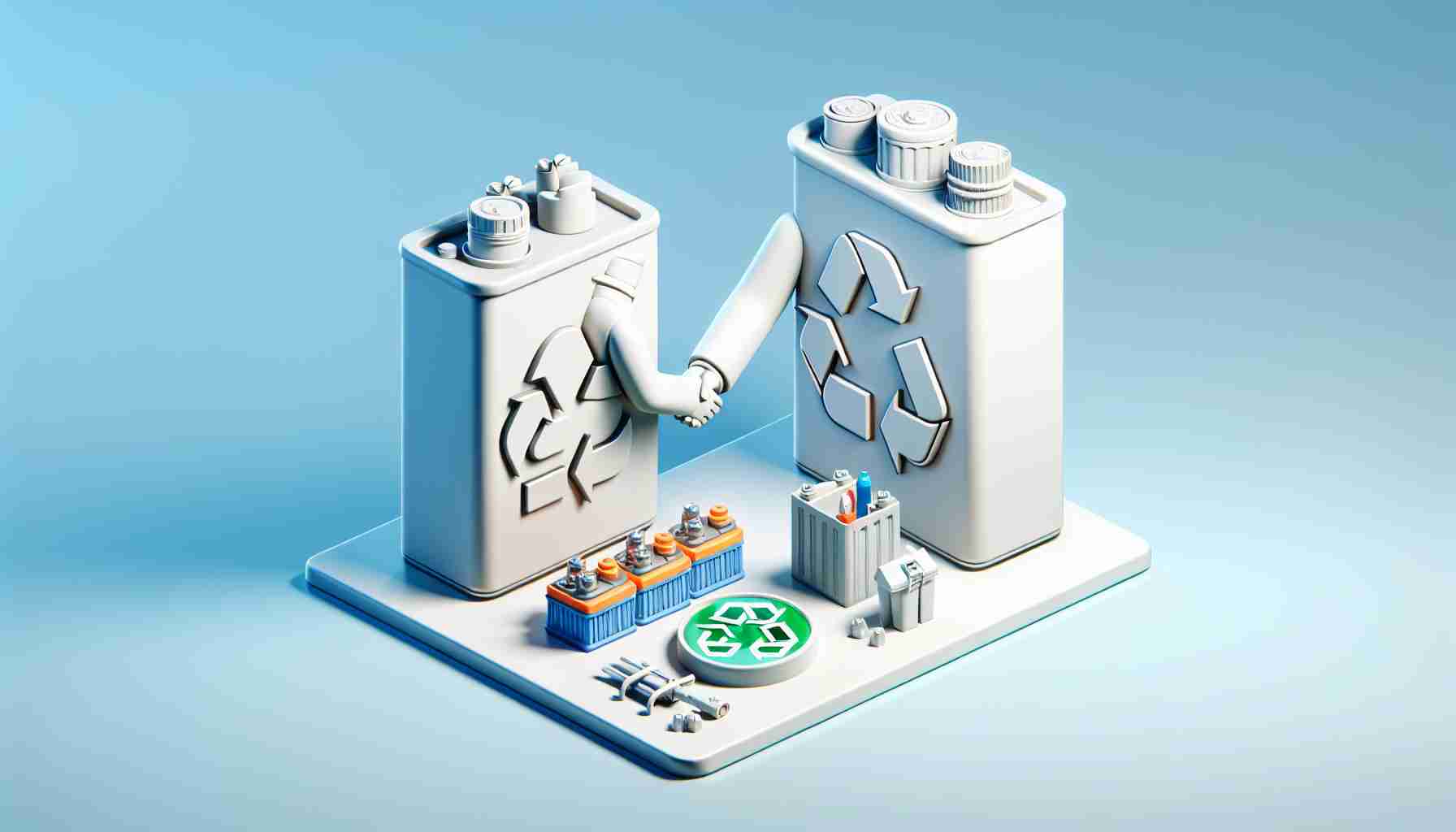In a significant step towards a closed-loop economy for electric vehicle (EV) batteries in Europe, leading chemical company BASF has teamed up with European recycling leader Stena Recycling. The industry giants have signed an agreement for the purchase of black mass, signaling a new approach to creating a comprehensive value chain for EV battery recycling in Europe.
Mapping the Path to Sustainable Battery Recycling
In light of the growing demand for sustainable battery recycling solutions, this alliance aims to combine Stena Recycling’s expertise in recycling with BASF’s materials knowledge. The goal is to improve black mass production processes to maximize the recovery of valuable metals such as lithium, nickel, and cobalt. Black mass, the product of mechanical processing of used lithium-ion batteries and production waste, contains these valuable metals.
Task Division for a Common Goal
Clear task division has been established within the partnership. Stena Recycling will be responsible for collection, dismantling, and black mass production. At the same time, BASF will process the black mass at its prototype refinery in Schwarzheide and plans to establish a full-scale metal refinery in Europe. This initiative not only paves the way for closed-loop solutions but also reduces the carbon footprint of new batteries through metal recycling.
Voices from the Alliance
Marcus Martinsson from Stena Recycling emphasized the importance of industry collaboration for a sustainable green transition. Similarly, Dr. Daniel Schönfelder from BASF highlighted the role of the partnership in strengthening BASF’s battery recycling capabilities and expanding services for battery and EV manufacturers in Europe.
Introduction of Battery Passports for all EVs sold in the EU from 2027 by the European Union makes this partnership a timely response. These passports, containing information about the supply chain and materials used in battery production, will bring greater accountability and transparency to the EV industry. This pragmatic effort, involving multiple stakeholders, reinforces the EU’s commitment to responsible and sustainable electric mobility.
FAQ Section Based on the article’s main topics and information:
1. What is black mass?
Black mass is the product of mechanical processing of used lithium-ion batteries and production waste. It contains valuable metals such as lithium, nickel, and cobalt.
2. What is the goal of the BASF and Stena Recycling partnership?
The partnership aims to align Stena Recycling’s recycling expertise with BASF’s battery materials expertise. They seek to improve black mass production processes to maximize the recovery of valuable metals.
3. What are Stena Recycling’s responsibilities within the partnership?
Stena Recycling will be responsible for collection, dismantling, and black mass production.
4. What are BASF’s responsibilities within the partnership?
BASF will process the black mass at its prototype refinery in Schwarzheide and plans to establish a full-scale metal refinery in Europe.
5. What are the main benefits of this initiative?
This initiative paves the way for closed-loop solutions for electric vehicle batteries and reduces the carbon footprint through metal recycling. It is also a response to the introduction of battery passports for EVs sold in the EU.
6. Who emphasized the importance of industry collaboration?
Marcus Martinsson from Stena Recycling emphasized the importance of industry collaboration for a sustainable green transition.
7. What role does the partnership play for BASF?
Dr. Daniel Schönfelder from BASF highlighted the role of the partnership in strengthening BASF’s battery recycling capabilities and expanding services for battery and EV manufacturers in Europe.
Proposed Related Links:
– BASF
– Stena Recycling
Note that these links are examples and are part of the format, but make sure to use relevant and correct links.
The source of the article is from the blog toumai.es
